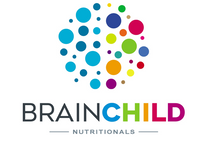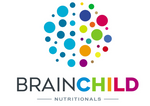BIOMEDICAL NUTRITION AUTISM VITAMIN B6 AND MAGNESIUM

Vitamin B6, which is known as pyridoxine is an essential vitamin that is crucial in more than 60 biological processes of a healthy human body. The body has mechanisms that converts vitamin B6 into pyroxidal-5-phosphate (P5P), the active form of vitamin B6. The process generates an enzyme that is used to release energy from starches and break down proteins. P5P is also used in the production of various chemicals in the brain and clearly demonstrate support for different brain functions.
Magnesium is an essential mineral, perhaps the most important of all minerals. Magnesium is necessary for the health of essentially every cell in the body, including the proper functioning of brain and muscle cells. While it is rare to have a magnesium deficiency, some research suggests that children with autism may have too little magnesium. Therefore, parents are encouraged to supplement a child’s diet with a combination of vitamin B6 and magnesium as a nutrition support for autism.
In todays’ modern world, Vitamin B6 and magnesium supplements can be purchased online, or from almost any grocery, drug, or health-food store. However, the quality, type and absorption rate of the magnesium is what makes the entire difference. The quality, refers to the raw material source used to extract the magnesium and the residual items attached to the magnesium. In a perfect world magnesium would have been free from other minerals or element, but most supplements brands just opt for the cheapest source of magnesium which contains a lot of other attached minerals, this may be counterproductive to the nutrition goals we want to achieve.
Magnesium is found in many foods, but is especially rich in green vegetables, seeds, nuts, and whole grains. It can be taken every day. While it is not clear what the proper dose for children with autism should be, one research report used a dose of 10-15 mg/kg/day (or about 180-270 mg total daily for a 40-pound child) divided into two doses.
If you choose to supplement vitamin B6 and magnesium, ask your child’s pediatrician about the appropriate dose for your child. Vitamin B6 may cause upset stomach if it is not taken together with a meal.
The associated enzyme used to break down vitamin B6 into P5P may not work as well in children with autism. If that is the case, look for a vitamin b-6 that is already “pre-digested”, that has the P5P form of the vitamin. This is needed for the production of dopamine, a brain chemical that is very important for many behaviors. When children with autism are not producing enough P5P, then supplementing with extra B6 may help boost the production and reach normal levels.
Children with autism can have significantly lower levels of magnesium in hair and blood than non-autistic children. The reason for that is unknown and there are various conflicting reports. But the prevailing information that have been demonstrated in various studies is that magnesium supplementation can have a calming effect on some children with attention-deficit hyperactivity disorder (ADHD).
Aside from the necessity of magnesium for the overall physical health as well as the proper functioning of the brain, there is no specific theory about how magnesium deficiency could contribute to autism. The two supplements are often given together, as some researchers have reported that the side effects of vitamin B6 treatment are eliminated by the addition of magnesium.
It is important to note, that there has been controversy surrounding the evidence or the effectiveness of vitamin B6 and magnesium in autism. Two small but well-controlled studies showed no effects, positive or negative, of combined vitamin B6 and magnesium therapy. One larger, but less well-controlled study showed positive and significant behavioral effects to a combined vitamin B6 and magnesium. Other studies showed that vitamin B6 and magnesium had significant positive effects on behavior in children with autism. However, with all the mentioned studies, there were major problems in the designs of these studies. The researchers in most of these studies knew that the children were receiving supplements. Therefore, their ratings of the children’s behaviour could be biased. The study that used BrainChild Nutritionals supplements was a small, double-blind study, that suggested that vitamin B6 and magnesium together can improve behavior in some children with autism.
In summary,it is not conclusive that supplementation of vitamin b-6 and magnesium has a positive impact on Autism children behavior, however when benefit are reported, it clearly outweighs any adverse or “no effect” reported.
These statements have not been evaluated by the FDA. These products are not intended to diagnose, treat, cure or prevent any disease. Check with your child’s pediatrician before starting any supplements or changing your child’s diet.
References
- Holman, P. 1995. “Pyridoxine – Vitamin B-6.” Journal of Australian College of Nutritional & Environmental Medicine 14(1):5-16.
- Strambi, M., et al. 2006. “Magnesium profile in autism.” Biol.Trace Elem Res 109(2):97-104.
- Adams, J.B., and C. Holloway. 2004. “Pilot study of a moderate dose multivitamin/mineral supplement for children with autistic spectrum disorder.” J Altern.Complement Med. 10(6):1033-1039. (This study was done using BrainChild Nutritionals products)
- Fido, A., et al. 2002. “Biological Correlates of Childhood Autism: Trace Elements .” Trace Elem Electrolytes 19:205-208.
- Starobrat-Hermelin, B., and T. Kozielec. 1997. “The effects of magnesium physiological supplementation on hyperactivity in children with attention deficit hyperactivity disorder (ADHD). Positive response to magnesium oral loading test.” Magnes.Res 10(2):149-156.
- Nye, C., and A. Brice. 2005. “Combined vitamin B6-magnesium treatment in autism spectrum disorder.” Cochrane.Database.Syst.Rev. (4):CD003497.
- Wang, H.S., et al. 2005. “Pyridoxal phosphate is better than pyridoxine for controlling idiopathic intractable epilepsy.” Arch.Dis.Child 90(5):512-515.
- Tolbert, L., et al. 1993. “Brief report: lack of response in an autistic population to a low dose clinical trial of pyridoxine plus magnesium.” J Autism Dev Disord. 23(1):193-199.
- Findling, R.L., et al. 1997. “High-dose pyridoxine and magnesium administration in children with autistic disorder: an absence of salutary effects in a double-blind, placebo-controlled study.” J Autism Dev Disord. 27(4):467-478.
- Pfeiffer, S.I., et al. 1995. “Efficacy of vitamin B6 and magnesium in the treatment of autism: a methodology review and summary of outcomes.” J Autism Dev Disord. 25(5):481-493.




